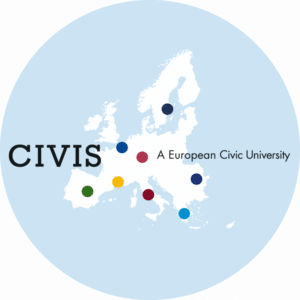Find all our scientific publications on HAL
Mediterranean Institute of Oceanography
Explore and Understand the Ocean !
The MIO oceanographic research laboratory is part of the OSU-Pythéas Institute and is jointly run by the University of Aix-Marseille, the University of Toulon, the CNRS and the IRD (UMR 110AMU, 7294 CNRS, 235 IRD, UTLN). Our aim is to gain a better understanding of the ocean system and its evolution in response to global change. The MIO is a centre of expertise in marine biology, ecology, biodiversity, microbiology, fisheries, physics, chemistry, biogeochemistry and sedimentology. Our working environment is the world ocean, with its continental, atmospheric and sedimentary interfaces. For an ocean environment with a bright future!
Staff working at the M.I.O.
Events, Conferences & Seminars
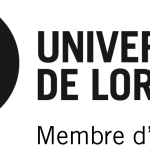
The Université de Lorraine, in partnership with Couperin, invites you to an online seminar on the challenges of scientific integrity in relation to the publication process. Introduced by Nicolas Fressengeas (Univ. Lorraine), the seminar will feature contributions from French and international specialists in the field.
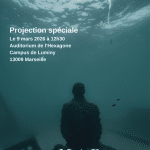
Mar'Save is a documentary that traces the history of pollution in the Mediterranean Sea from Marseilles to the present day, and highlights the public, political and scientific action taken to improve water quality. With
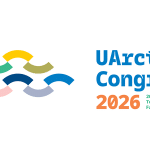
UArctic Congress 2026 Please note : The deadline for abstract submissions has been extended to 15 January 2026. We invite abstract proposals aligned with the sessions that have been accepted. When submitting, authors are instructed to select the relevant session
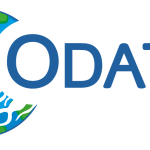
On this occasion, the Ocean cluster of the Data Terra research infrastructure is pleased to invite you to the «10 years of ODATIS» to bring together all those who have contributed to the dynamics of the cluster: our institutional partners
Calls for tender
Our oceanographic cruises
PLUME
28 May to 11 July 2024
The French-Vietnamese oceanographic campaign PLUME aims to better understand and quantify the transport of water, particles, natural and anthropogenic matter, their distribution along the river-estuary-ocean continuum and their impact on the coastal zone, mainly in the vicinity of the three largest river systems in Vietnam, namely the Red River, the Mekong River and the Saigon-Dong Nai river system, during the wet (rainy) season.
APERO
3 June to 17 July 2023
The APERO project proposes a mechanistic study of the biological carbon pump (export of biogenic carbon production at the surface and its fate in the water column - 200/2000m).
Bioswot-Med
21 April 2023 to 15 May 2023
BioSWOT-Med : A campaign as part of SWOT swath in the north-west Mediterranean
EMSO-LO/ANTARES
31 January to 14 February 2022
The EMSO ANTARES site, located at a depth of 2,500 m off the coast of Toulon, is part of the European EMSO-ERIC infrastructure and EMSO France Research Infrastructure (European Multidisciplinary Subsea Observatory-European Research Infrastructure Consortium).
EMSO ERIC aims to collect long-term time series over 12 years across Europe to monitor the consequences of global change on heat content, ocean acidification, deoxygenation and deep-sea marine ecosystems. EMSO also aims to provide tool services for ecosystem management and mitigation.
EMSO France is a research observatory built or multidisciplinary, in real or delayed time, based on mooring lines and deep-sea observatories. EMSO-ANTARES is supported by the MOOSE national network.
Fumseck
30 April 2019 to 7 May 2019 The FUMSECK campaign (Facilities for Updating the Mediterranean Submesoscale-Ecosystem Coupling Knowledge) is a one-week technological campaign, from 30/04/2019 to 07/05/2019, in the Mediterranean in the Gulf of Genoa, on board the N/O Téthys II. Its mission is to carry out technological tests, at various levels, of the instruments used to study fine-scale processes and dynamics (from 0.1 to 100 km for a lifetime of a few days to a few weeks).
MERITE-HIPPOCAMPE
13 April to 14 May 2019
A team of 16 French and Tunisian scientists, led by researchers from the MIO (UMR CNRS, IRD, AMU, UTLN) and IFREMER, is carrying out a 30-day trans-Mediterranean campaign, called MERITE-HIPPOCAMPE, aimed at characterising the state of health of marine ecosystems, in particular plankton contamination, in ecologically important areas in the north and south of the Mediterranean.
Tonga
1 November to 5 December 2019
TONGA is a multidisciplinary project dedicated to studying the control of oceanic productivity and carbon sequestration by micronutrients of hydrothermal origin. It brings together 90 scientists from 19 international institutions and is based on a 37-day oceanographic expedition in the tropical south-west Pacific (L'Atalante oceanographic vessel) and modelling work.
Bioswot
As part of the BioSWOT project supported by CNES (PI F.d'Ovidio, LOCEAN), the Institut Méditerranéen d'Océanologie (MIO) has developed a collaboration with SHOM (Service hydrographique et océanographique de la Marine).
A.Doglioli and G.Grégori boarded the BHO Beautemps Beaupré for the PROTEVS1-SWOT2 campaign (PI F.Dumas) in the western Mediterranean Sea, south of the Balearic Islands, from 28 April to 16 May 2018. In close interaction with a shore team (A.Petrenko, S.Barrillon, L.Rousselet, M.Thyssen) and in contact with colleagues from IMEDEA and SOCIB (PI A.Pascual and J.Allen) on board the r.v. "Garcia del Cid", MIO researchers studied the role played by marine currents in the structure and dynamics of the phytoplankton community.
Mobydick
18 February to 27 March 2018
The aim of MOBYDICK is to study the links between the biological carbon pump and the structure of the food web. To solve this problem, MOBYDICK proposes a new approach by considering the entire food web, from microbes to top predators, and by studying the hitherto poorly studied relationships between biogeochemical flows and biodiversity. The dataset needed to test the hypotheses proposed in MOBYDICK will be acquired during an oceanographic campaign off Kerguelen Island (Southern Ocean).
Sargassum
05 to 24 October 2017
The Sargasso Expeditions are a response to a major concern of the populations of the French West Indies, who have been repeatedly confronted since 2011 with brown tides followed by considerable groundings. This is having catastrophic consequences for benthic flora and fauna, as well as for human health and activities. Our scientists then set off on expeditions to take samples and carry out analyses to find out more about these brown algae.
Peacetime
10 May to 11 June 2017
The PEACETIME oceanographic cruise is scheduled to take place in the western and central Mediterranean from 10 May to 11 June 2017. The aim of this expedition is to study the critical processes induced by atmospheric deposition, in particular Saharan dust, occurring at the air-sea interface in the Mediterranean.
GreenEdge
Understanding the dynamics of the spring phytoplankton bloom and determining its role in the Arctic Ocean of tomorrow, including for human populations.
Outpace
The OUTPACE oceanographic campaign took place from 18 February to 3 April 2015 in the Pacific Ocean aboard the M/O L'Atalante.
The aim of this project is to provide a zonal description of biogeochemistry and biological diversity in the south-western tropical Pacific along a gradient of nutrient availability, and to produce a detailed study of biological production and its fate in 3 contrasting sites, with a particular focus on production supported by nitrogen fixation.
Vahine
The aim of the VAHINE project is to study the fate of fixed nitrogen in the oceanic planktonic food web and its potential impact on carbon export. The VAHINE campaign took place in the south-west Pacific (New Caledonia) in 2013, involving 45 scientists from France, Israel, Germany and the United States.










